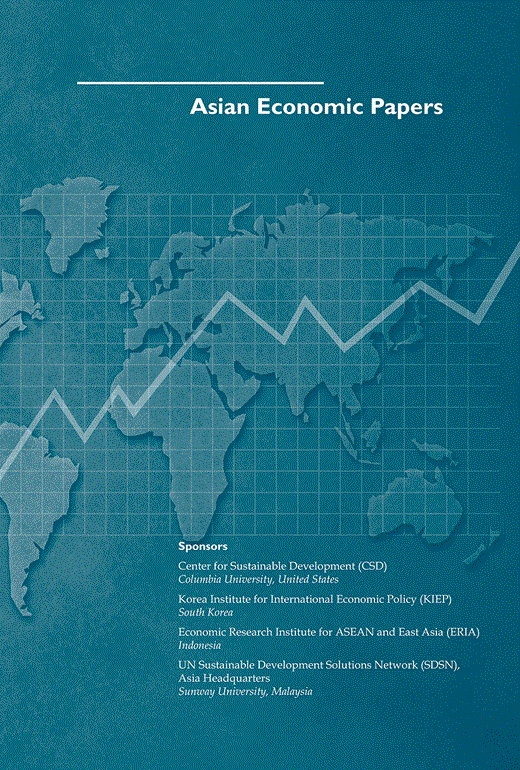斯里兰卡工业化战略的反思:成就、失去的机会和前景
IF 5.3
3区 经济学
Q1 ECONOMICS
引用次数: 0
摘要
摘要本文旨在通过分析后独立时代斯里兰卡的政策体制转变和结果,为当代发展中国家工业化战略的政策辩论做出贡献。该分析以公认的知识为指导,这些知识涉及一个小经济体所面临的挑战,这个小经济体在经济全球化时代设计国家工业化战略时,将世界价格视为既定价格,无法影响世界需求和供应。研究结果表明,在当代斯里兰卡政策辩论中,对自由化改革的强烈反对在很大程度上是基于意识形态偏好,而不是事实分析。对斯里兰卡在国家主导的进口替代时代和后改革时代(特别是前二十年)的工业化经验进行的比较分析,有力地说明了重新考虑将进口替代与出口导向结合起来并侧重于具体部门的优点。促进进口替代的选择性政策实质上是对出口生产者征收“税”。本文章由计算机程序翻译,如有差异,请以英文原文为准。
Rethinking Sri Lanka's Industrialization Strategy: Achievements, Lost Opportunities and Prospects
Abstract The purpose of this paper is to contribute to the contemporary policy debate on the industrialization strategy in developing countries by analyzing policy regime shifts and outcomes in Sri Lanka during the post-independence era. The analysis is guided by the received body of knowledge relating to the challenges faced by a small economy that takes world prices as given and is unable to affect world demand and supply in designing national industrialization strategy in this era of economic globalization. The findings demonstrate that the backlash against liberalization reforms in the contemporary Sri Lankan policy debate is largely based on ideological predilections rather than factual analysis. The comparative analysis of Sri Lanka's industrialization experience during the state-led import-substitution era and that of the post-reform era (in particular during the first two decades) makes a strong case for reconsidering the merit of the emerging emphasis on combining import substitution with export orientation with a sector specific focus. Selective policies to promote import substitution essentially impose a “tax” on export producers.
求助全文
通过发布文献求助,成功后即可免费获取论文全文。
去求助
来源期刊

Asian Economic Papers
ECONOMICS-
CiteScore
7.50
自引率
0.00%
发文量
16
期刊介绍:
The journal Asian Economic Papers (AEP) is supported by several prominent institutions, including the Center for Sustainable Development at Columbia University in the United States. This shows that there is a strong emphasis on sustainable development within the journal's scope. Additionally, the Korea Institute for International Economic Policy in South Korea, the UN Sustainable Development Solutions Network (SDSN) in Malaysia, and the Economic Research Institute for ASEAN and East Asia in Indonesia also sponsor AEP. The articles published in AEP focus on conducting thorough and rigorous analyses of significant economic issues pertaining to specific Asian economies or the broader Asian region. The aim is to gain a deeper understanding of these issues and provide innovative solutions. By offering creative solutions to economic challenges, AEP contributes to the discourse and policymaking that impact the Asian economies and region as a whole.
 求助内容:
求助内容: 应助结果提醒方式:
应助结果提醒方式:


